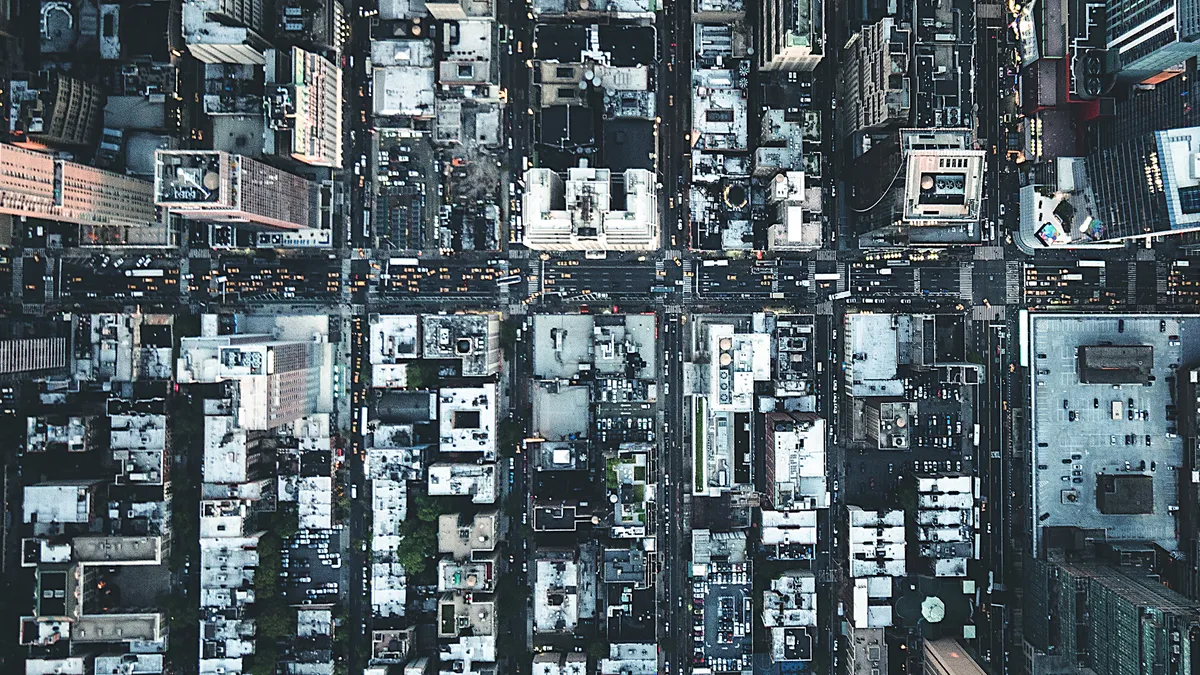UPDATED, April 1, 2019: New York state lawmakers on Sunday approved a $175.5 billion state budget agreement that includes a congestion pricing plan, which would charge drivers to drive in Manhattan’s business district south of 60th Street, according to The Wall Street Journal, AM New York and others. The budget now awaits a signature from Governor Andrew Cuomo.
Tolls would begin in late 2020 or early 2021 and would charge cars approximately $11 or $12 for entering the congestion zone, while trucks would be charged $25. The West Side Highway and FDR Drive are excluded from the zone. The charges will be automatically billed through E-ZPass, or riders can be sent a bill. Drivers will only be charged once daily.
The plan is expected to generate enough money to support $15 billion in transit improvements across New York over the next five years.
Dive Brief:
- Legislators in the New York State Assembly voiced support for a bill that would implement congestion pricing in New York City, according to The New York Times, The Wall Street Journal and others. Assembly Speaker Carl Heastie indicated he has enough votes to pass the legislation.
- Money raised through congestion pricing would go to the city's transit agency, the Metropolitan Transportation Authority (MTA), to fund subway system improvements. MTA officials estimate it could fund at least $15 billion in modernization projects.
- Final details for a congestion pricing plan have not yet been worked out. Lawmakers are trying to finalize the state budget before the new fiscal year starts on April 1, so the bill could be ready for passage this week. If the bill makes it through both chambers, it would then go to Gov. Andrew Cuomo for final approval, making New York the first city in the country to implement congestion pricing.
Dive Insight:
New York City Mayor Bill de Blasio previously had opposed a congestion pricing plan despite Cuomo's longtime support. That changed last month when the two jointly released a plan to "transform" MTA, which contained a measure to add congestion pricing in Manhattan's Central Business District.
Leaders have been trying for some time to remedy what ails MTA. Disinvestment and piecemeal repairs have left the subway's infrastructure in a state of decline. For a while, the growing system delays were merely an annoyance. But the situation became more serious when a subway train derailed in 2017 and 34 people were hurt. That event led Cuomo to declare a state of emergency for MTA and pledge $1 billion for improvements. Since then, transit modernization has become a top priority and MTA even released an ambitious repair plan on a sped-up timeline.
Although support for MTA improvements is strong, how to fund those improvements is a sticking point. Congestion pricing has been floated for years as a way to get transit infrastructure funding while also potentially providing a disincentive for people to drive in the city during peak times, thus cutting congestion.
Democrats largely support the congestion pricing plan, and they control both chambers of New York's state legislature. Republicans mostly oppose the concept, referring to it as a new tax. Some legislators don't outright oppose congestion pricing, but they would like to see it fund commuter train systems in addition to the subway system to alleviate an unfair financial burden on residents who live in the suburbs and commute to the city. Exemptions are being considered for others who might also face a large burden from congestion pricing, such as citizens who are poor or have disabilities.












